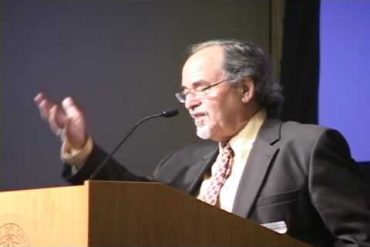Like many a failed amour, the European far-Left’s falling out of love with Israel has resulted in residual bitterness and antagonism far beyond logic or reason. One sees this particularly well reflected in the decidedly over the top disappointment of many a Western radical socialist with Israel’s kibbutz movement, perceived by many as having engaged in a traitorous abandonment of socialist principles, and embodying a concentrated version of the bizarre sense of disillusionment they feel about Israel in general.
It was therefore not surprising to see Harriet Sherwood playing to her familiar gallery of anachronistic radical Lefties in her August 13th Guardian piece, by insisting that the 100-year-old kibbutz movement is “facing an uncertain future”, even though most of those she interviewed for her article seemed to be of the opposite opinion.
Opening with a Bettelheim-style caricature of kibbutz life in the days before children slept in their parents’ homes, Sherwood obviously fails to recognize that everything that each kibbutz was then and is today comes as a result of the decisions of its members taken at communal meetings. If the children once slept in communal children’s houses, it was because the majority of the parents wanted it that way. At Degania Aleph – the first kibbutz – the children always slept at home but on other kibbutzim it was decided that they would live communally, for reasons ranging from the need for as many working hands as possible to economics, ideology and security. Interesting as they are, this is not the place for lectures on kibbutz theories of education, but Sherwood’s claim that the children’s society, as it is known, is a method of “inculcating in them the ideology of collectivism” sounds far more sinister than it actually is. After all, it is the task of any system of education to prepare children for life in the particular society of which they are part.
Collective sleeping arrangements for children eventually went the way of many other kibbutz institutions, including the ban on personal electric kettles, televisions or telephones and bigger issues such as the ban on private wealth. These changes happened throughout the history of the kibbutz movement because at any time, any member who wished to make changes had the right to bring the subject up to the weekly meeting and persuade others to vote for his or her amendment. The changes reflected not only the growing affluence of the kibbutzim and the country in general, but also our gradual recognition of the fact that we could have a kettle in our kitchen or choose our children’s clothes ourselves and be no less decent socialists for that.
In addition, kibbutzim could not remain in an anachronistic bubble as the country’s economy developed. At the time of the establishment of Israel, with no financial or natural reserves to speak of, no infrastructure, few public services and hundreds of thousands of poor immigrants to take care of, the new country took the socialist route to get on its feet and remained that way until 1977. Coupled with the hyper-inflation of the early 1980s, this meant that until the mid to late 1980s the standard of living in the kibbutz was not vastly different from that in the rest of the country. As Israel’s economy strengthened and standards of living rose, together with an increased sense of individualism and the collapse of communism in other parts of the world, the priorities of kibbutz members often changed and more personal freedom and responsibility was sought.
In an interview with Jamie Glazov in 2005 Dore Gold gave a concise explanation of why of the far-Left fell out of love with Israel in general and the kibbutz movement in particular.
“The old European left felt connected to Israel. First, their Soviet allies initially supported Israel as an instrument against British imperialism. Later, after the split between Israel and the USSR, Israel still stood out as a real experiment in socialism; for the European left that no longer bought into the Soviet Union as a workers’ paradise, the hard-working farmers on an Israeli kibbutz were to be admired and many Europeans came to volunteer for a summer on a kibbutz. Finally, until 1977, the European socialist parties maintained strong ties with the Israeli governing elite from the Israeli Labor Party through the Socialist Internationale. Secularized European socialists did not have to consider whether the return of the Jewish people to their homeland after 2000 years was legitimate, because the results of this experiment, regardless of its roots, was supposed to be part of their socialist world order, in any case.
When Israel became a global ally of the United States in the early 1970’s downing Soviet MiGs over the Suez Canal and taking on Soviet expansionism in the Eastern Mediterranean, the European left became more disenchanted with Israel, just like they became alienated from other American Cold War partners (they went after the human rights record of US allies and not Soviet satellites). And with the rise of the conservative Likud Party, that replaced the Israeli Labor Party for the first time in 1977 (and kept getting re-elected in the next fifteen years) the special Socialist link to the European Left was broken. Some of their leaders adjusted to the new reality. But for the radical Left, Israel now had no redeeming features. The Bible certainly had no meaning to those who were weaned on a strictly Marxist diet in their youth. Many looked at Israel, not as an epic drama of a people returning to history after centuries of exile, but rather as a throwback to European imperialism. For them it became illegitimate.”
Ignoring this history – which says more about the European far-Left itself than it does about Israel – Sherwood creates a strawman by claiming that “some are asking if, despite the reforms and adaptations, this unique form of collective living is facing an existential crisis in a globalised, market-driven, individualist world”, but of course refrains from telling us who the asking ‘some’ are.
In fact the 123,000 people living in 237 kibbutzim and comprising 1.7% of Israel’s population are still punching above their weight, as they have done for most of their history in many fields. Kibbutzim contribute 6% of the country’s GNP and kibbutz industries produce 5.9% of Israel’s industrial sales and 8.2% of its exports. Kibbutz industries have long since embraced the globalised, market-driven world and are constantly engaging in new projects ranging from wine production to solar energy and water-related technology to name but a few.
The effect of privatization at the individual level has meant that the kibbutz is now able to attract people looking for more freedom of choice and opportunities than the old kibbutz had to offer. The result is that both kibbutz-born children with their own young families and urbanites looking for a rural lifestyle with established facilities such as high standard education can enjoy kibbutz life with or without the added aspect of membership of the kibbutz. One only has to look at the dozens of ‘community neighbourhoods’ springing up around established kibbutzim to see that Sherwood’s “existential crisis” is far from reality.
We kibbutzniks may no longer toil exclusively in the fields by day and dance the hora around the campfire by night, but all that has happened is that we have changed and evolved over the last one hundred years in precisely the same manner as every other modern, democratic, industrialized society throughout the world. Undoubtedly, this fact corrodes the romance which once tinged the European Left Wingers’ view of kibbutzim, but we are not some endangered species or quaint tribe in a National Geographic documentary to be preserved for posterity’s sake. In fact, European socialists may be interested to discover that our new way of life contains hallmarks of a kind of socialism seen in the more advanced countries.
Despite the privatization and expansion of personal liberties, means of production are still communal with each member holding a stake and being paid an annual dividend from the profits made. Wages are now differential, but the taxes paid to the community are proportional and go towards providing a ‘security net’ for those unable to reach the defined ‘fair income’ for whatever reason, so that no-one finds themselves unable to enjoy a reasonable standard of living. In addition, community taxes are used to create a ‘mutual help fund’ which can give interest-free loans or grants to members encountering unexpected outlay such as exceptional medical bills or the need to assist ageing parents outside the kibbutz. Taxes are also used to ensure a private pension for each member. So in fact, for around a decade now kibbutz members have been engaged in trying to strike a balance between a socially responsible community which safeguards a certain standard of living for all its members and the necessity to be economically viable and efficient.
The result may be disappointing to those anachronistic radical socialists to whom Sherwood seems to be pandering with this caricature of both past and contemporary kibbutz life, but that of course has little to do with real socialist principles and everything to do with the attempt to rationalise an unjustifiable, if fashionable, political stance.




